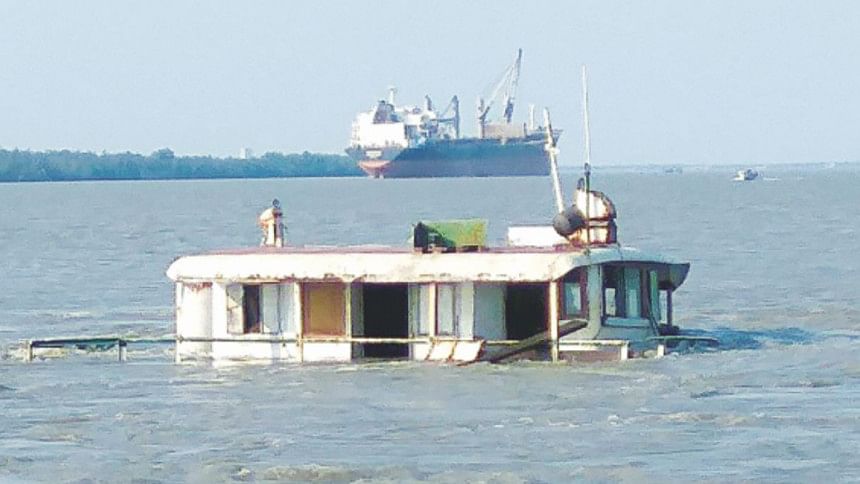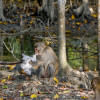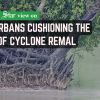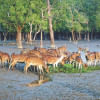Vessels sinking: Sundarbans ecology braces for disaster

The repeated incidents of vessels capsizing while carrying coal and different chemicals in the Sundarbans water routes have put the flora and fauna of the world's largest mangrove forest at stake.
A total of eight commercial ships -- one oil tanker, six vessels carrying coal and fertiliser, and a launch -- sank in rivers running through the Sundarbans in the last five years from March 14, 2013 to April 14, 2018.
According to the Sundarbans East Zone, 'MV Motahar' capsized on March 14, 2013 while 'MV Shahidut' on November 24, 2014, 'MV Southern Star-7' carrying furnace oil on December 9, 2014, 'MV Jabalenoor' on May 5, 2015, 'MV Zia Raj' on October 28, 2015, 'MV Sea Horse-1' on March 19, 2016, 'MVAichgati' on January 13, 2017 and 'MV Bilash' on April 14, 2018.
A tanker carrying over 3.57 lakh litres of furnace oil sank in the Shela River at Jaimanigol under the East Zone of the Sundarbans, severely affecting the aquatic creatures, biodiversity and plants in the mangrove forest.
The oil had spilled over into 45 miles along the river, a major sanctuary for aquatic animals in the Sundarbans. At least 20 canals and a major river, Pashur, are connected with the river.
In the latest accident on Saturday night, 'MV Bilash' carrying 775 tonnes of coal capsized in the Passur River near the Sundarbans.
Commander Oli Ullah, harbour master of Mongla Port, said the Jashore-bound vessel capsized in the river around10pmafter loading coal from mother vessel, 'MV Observatory', at the port.
After the accident, Mongla Port Authority Chairman Commodore AKM Faruk Hasan said they ordered the owner to salvage the cargo within the next 15-20 days. "If they fail to do so, the port authorities will sell it in auction and then we'll work to retrieve the cargo," he had said.
However, although three days have elapsed since the accident, no initiative has been taken to salvage the sunken vessel.
Vessel owners said they will start the salvage operation soon. In the meantime, they sent two vessels to the spot for the release of coal from the cargo. The cargo will be dragged to the shore by the next two days.
Environment specialists suggested immediate salvage of the coal-laden vessel to lessen the impact of coal spill on the Sundarbans ecology.
Talking to UNB, Mahmudul Hasan, divisional forest officer (DFO) of the Sundarbans East Zone, said the vessel capsized very close to the Sundarbans."Now the cargo is lying under water in the Mongla Port channel of the river, he said.
During ebb-tide, a portion of the cargo is seen slightly, but it completely goes under water during the high tide, he said, adding that coal is spilling into the water.
The DFO said they have sent a letter to the Mongla harbour master to salvage the vessel as early as possible.
Mentioning that the Sundarbans' biodiversity is affected due to the sinking of vessels, he said the plying of commercial vessels should be banned through the mangrove forest.
Prof Dr Mahmood Hossain of Khulna University's Forestry and Wood Technology Discipline said coal contains sulfur and heavy metals that are harmful for the ecosystem. "If the cargo remains sunken in the Sundarbans, it'll affect the ecology. For this, the course of channel might also be changed, triggering river erosion," he said.
The expert also suggested examining the fitness and capacity of vessels and employing skilled masters to avoid such accidents.

 For all latest news, follow The Daily Star's Google News channel.
For all latest news, follow The Daily Star's Google News channel. 








Comments